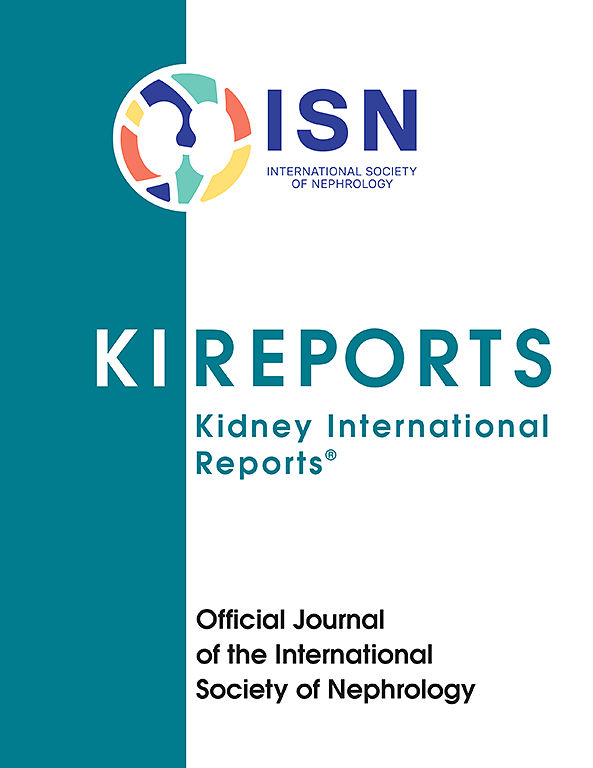A Comprehensive Framework for Kidney Function Assessment: Summary of the National Institute of Diabetes and Digestive and Kidney Diseases Reimagining Kidney Function Assessment Workshop
IF 5.7
2区 医学
Q1 UROLOGY & NEPHROLOGY
引用次数: 0
Abstract
Current kidney function assessment primarily relies on estimation of glomerular filtration rate (GFR), which fails to capture the full spectrum of kidney functions and may limit accurate disease classification and targeted treatments. To propose innovative strategies to comprehensively assess kidney functions, aiming to improve our capacity to uncover pathophysiologic mechanisms and delineate novel disease subgroups, the National Institute of Diabetes and Digestive and Kidney Diseases (NIDDK) convened a workshop titled “Re-imagining Kidney Function Assessment.” This workshop brought together experts to discuss current limitations and potential advancements in kidney function evaluation. Key themes emerged, including the following: (i) the need for standardized protocols for measured GFR using exogenous filtration markers, (ii) the potential of kidney functional reserve (KFR) and stress tests to reveal subclinical kidney dysfunction, (iii) the importance of assessing tubular secretion alongside glomerular filtration, (iv) the value of glomerular permselectivity measurements in predicting disease progression; and (v) the promise of integrating molecular profiling with functional assessments for precision medicine in nephrology. The workshop highlighted the critical need for a more comprehensive approach to kidney function assessment. Integrating diverse kidney function measures into tailored, individual-level assessments could lead to more accurate disease classification, targeted interventions, ability to track response to therapies, and improved patient outcomes. Future research should focus on developing and validating these novel assessment strategies to advance precision medicine in nephrology.
肾功能评估的综合框架:国家糖尿病、消化和肾脏疾病研究所重塑肾功能评估研讨会总结
目前的肾功能评估主要依赖于肾小球滤过率(GFR)的估计,这无法捕捉肾功能的全谱,并可能限制准确的疾病分类和靶向治疗。为了提出全面评估肾功能的创新策略,旨在提高我们发现病理生理机制和描述新疾病亚群的能力,国家糖尿病、消化和肾脏疾病研究所(NIDDK)召开了一次题为“重新想象肾功能评估”的研讨会。本次研讨会汇集了专家讨论目前肾功能评估的局限性和潜在的进展。关键主题包括以下内容:(i)使用外源性滤过标记物测量GFR的标准化方案的必要性;(ii)肾脏功能储备(KFR)和压力测试揭示亚临床肾功能障碍的潜力;(iii)评估肾小球滤过时小管分泌的重要性;(iv)肾小球过透选择性测量在预测疾病进展中的价值;(v)将分子谱分析与肾内科精准医学的功能评估相结合的前景。研讨会强调了对更全面的肾功能评估方法的迫切需要。将多种肾功能测量整合到量身定制的个人水平评估中,可以更准确地进行疾病分类、有针对性的干预、追踪治疗反应的能力,并改善患者的预后。未来的研究应侧重于开发和验证这些新的评估策略,以推进肾脏学的精准医学。
本文章由计算机程序翻译,如有差异,请以英文原文为准。
求助全文
约1分钟内获得全文
求助全文
来源期刊

Kidney International Reports
Medicine-Nephrology
CiteScore
7.70
自引率
3.30%
发文量
1578
审稿时长
8 weeks
期刊介绍:
Kidney International Reports, an official journal of the International Society of Nephrology, is a peer-reviewed, open access journal devoted to the publication of leading research and developments related to kidney disease. With the primary aim of contributing to improved care of patients with kidney disease, the journal will publish original clinical and select translational articles and educational content related to the pathogenesis, evaluation and management of acute and chronic kidney disease, end stage renal disease (including transplantation), acid-base, fluid and electrolyte disturbances and hypertension. Of particular interest are submissions related to clinical trials, epidemiology, systematic reviews (including meta-analyses) and outcomes research. The journal will also provide a platform for wider dissemination of national and regional guidelines as well as consensus meeting reports.
 求助内容:
求助内容: 应助结果提醒方式:
应助结果提醒方式:


